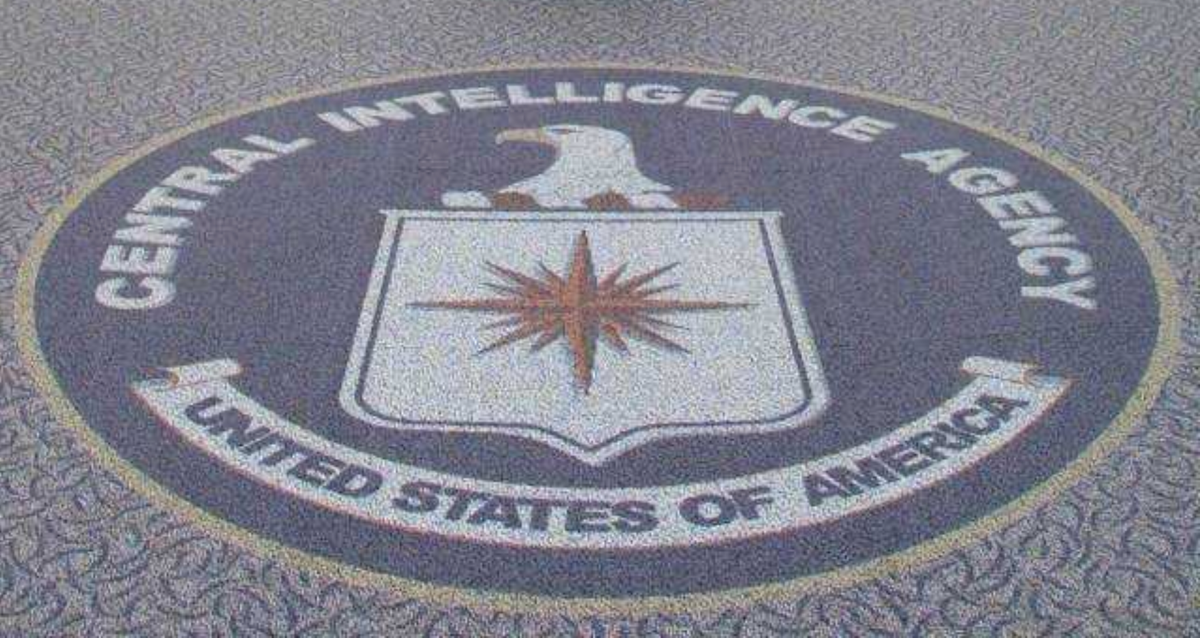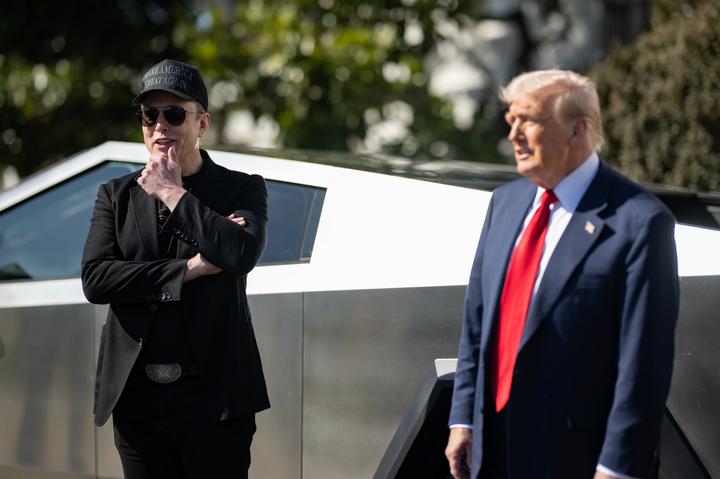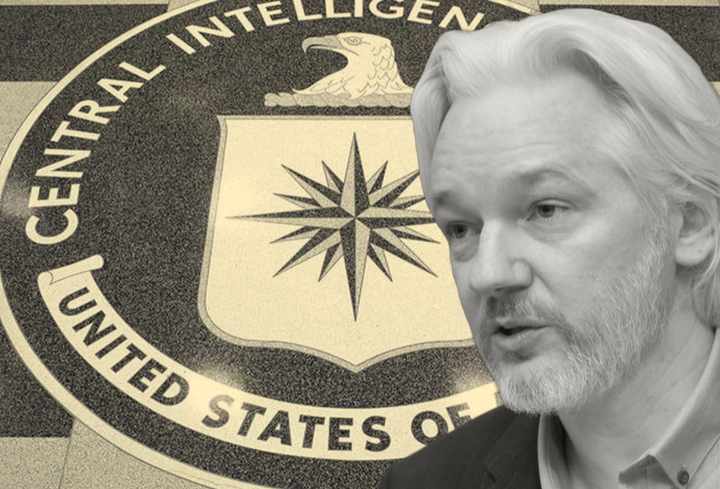In Hunting WikiLeaks, How Wide Was The National Security State’s Net?
When it comes to their war on WikiLeaks, there is strong reason to believe that the three-letter agencies didn’t stop at its founder. The question is: how far beyond Assange did they go?

Support independent journalism on whistleblowers, government secrecy, and press freedom-related issues. Become a subscriber of The Dissenter.
Ever since WikiLeaks began exposing its crimes, the United States national security state has pursued a ruthless vendetta against it.
The Justice Department is currently seeking to have Julian Assange extradited to the U.S. to stand trial under the Espionage Act. The source of the revelations, Chelsea Manning, was already convicted by a military court under the Espionage Act. She was also tortured in pretrial detention. In addition to this abuse of the legal process to destroy WikiLeaks, the intelligence community has waged an extralegal war. The Central Intelligence Agency (CIA), Federal Bureau of Investigation (FBI), and National Security Agency (NSA) have all participated in this extralegal war. Among the most notorious are the serious allegations that the CIA—working with Spanish security contractor UC Global—spied on Assange’s legal meetings, seriously contemplated kidnapping the journalist, and discussed killing him.
When it comes to their war on WikiLeaks, there is strong reason to believe that the three-letter agencies didn’t stop at its founder. The question is: how far beyond Assange did they go?
A February 2023 investigation published by Der Spiegel posed the question, “Is the CIA hunting Wikileaks supporters?” It looks at the series of strange break-ins, unexplained surveillance, and even prosecutions WikiLeaks supporters have faced globally. The article zooms in on the cases of Andy Müller-Maguhn, a friend of Assange and Vice President of the Wau Holland Foundation, which processes donations for WikiLeaks; Aitor Martínez, one of Assange’s Spanish lawyers; and Ola Bini, a Swedish programmer and friend of Assange.
As one of Assange’s regular visitors when he was closely monitored in the Ecuadorian embassy, Müller-Maguhn has reported a number of encounters with obvious surveillance. He was regularly questioned at the London airport; cars followed him to and from the embassy. But he also began experiencing a number of more intrusive forms of surveillance. He was photographed by a stranger with a telephonic lens in Milan, his Berlin home was the subject of an attempted break-in, and he discovered a surveillance device implanted in his apartment in Southeast Asia.
Aitor Martínez and Assange’s Spanish team had similar experiences. Martínez’s personal residence in Madrid experienced a break-in. On December 17, 2017, three masked men broke into the legal team’s office. Security camera footage shows them ignoring valuables and cash, but rifling through drawers and filing cabinets clearly looking for something. They ultimately left, stealing a Christmas ham.
Ola Bini’s case is perhaps the most distressing. Bini has lived in Ecuador since 2013. Although he was friends with Assange and visited him over 15 times in the London embassy, Bini maintains he never worked for WikiLeaks or Assange. Hours after Assange’s arrest, Bini was arrested in Ecuador. Bini was accused of attempting to destabilize the government and attacking its computer systems. Prosecutors explicitly alleged he had conspired with Ricardo Patiño, the former foreign minister of Ecuador who granted Assange asylum. The arrest was internationally condemned and viewed as politically motivated. Critics maintain that not only was Bini targeted for his relationship with Assange, but that his prosecution was meant to demonize supporters of the former leftwing government of Rafael Correa. Bini was eventually acquitted, but his ordeal continues.
As the Der Spiegel piece makes clear, there is no smoking gun linking the experiences of Müller-Maguhn, Martínez, and Bini to any U.S. intelligence agency. Yet, it is not paranoid for supporters of Assange to wonder if strange break-ins, surveillance, and open lawfare have their origins with the U.S. national security state.
Der Spiegel is not the first publication to document the strange occurrences Assange supporters and visitors have encountered. In 2020, journalist Charlies Glass wrote a piece for The Intercept entitled, “The Unprecedented and Illegal Campaign to Eliminate Julian Assange.” In it, he described his own strange encounters. Two days after visiting Assange in the Ecuadorian embassy, an office he shared in London was broken into. His computer was stolen, his officemates’ computers were left untouched. Glass wrote, “It’s impossible to prove who did it, but it’s not impossible to guess.”
Italian journalist Stefania Maurizi also had a bizarre run-in. Maurizi visited Assange multiple times and has served as a media partner for every major WikiLeaks release, as well as the Italian media partner for the Snowden disclosure. While Maurizi was working with WikiLeaks files concerning the NSA’s surveillance of world leaders, someone stole her backpack at a train station. After reporting the incident to the police, the police dubbed it an “atypical robbery.”
Maurizi also experienced surveillance while visiting Assange at the embassy. UC Global security contractors took her electronic devices from her during her visits. They removed the devices’ SIM cards and photographed them. Other visitors to the embassy were similarly spied upon. This surveillance prompted a lawsuit against the CIA from four U.S. citizens, including Glass, which is still ongoing. The CIA and others are trying to have the case thrown out.
Revelations from the Snowden disclosures also shed disturbing light on the potential breadth of the U.S. national security state’s war on WikiLeaks. The Government Communications Headquarters—the British equivalent of the NSA—tapped into the backbone of the internet to gather the IP addresses of those who visited the WikiLeaks website.
Additionally, inside the NSA, officials discussed declaring WikiLeaks a “malicious foreign actor.” Legal designations like this have been key to the three-letter agencies’ war on the organization. The CIA and FBI tried to get WikiLeaks designated as “information brokers” to get around rules on targeting journalists. The CIA did declare WikiLeaks a “hostile non-state intelligence agency,” a maneuver that allowed them to engage in “offensive counterintelligence” against the organization something that has previously only been allowed for targeting state intelligence services. But the NSA designation would be particularly pernicious. By labeling WikiLeaks a malicious foreign actor for targeting purposes, the NSA would be able to electronically target WikiLeaks for surveillance, without excluding information about U.S. persons.
The Electronic Privacy Information Center (EPIC) in 2011 filed a Freedom of Information Act (FOIA) request with the Department of Justice and FBI for files about an investigation into WikiLeaks, including “all records regarding lists of names of individuals who have demonstrated support for or in interest in WikiLeaks.” The FBI withheld the documents by arguing an investigation was ongoing, which a district court upheld.
Historically, the FBI targeted groups it dubbed subversive, such as the Communist Party and the Socialist Workers Party. An explicit goal of this targeting was the fear that the American people might view these organizations as legitimate political parties. The FBI’s spying did not stop there. They claimed the power to track subversives also meant they could spy on and destroy those who might be influenced or infiltrated by subversives. The FBI infamously launched “communist infiltration” investigations into the NAACP, the Southern Christian Leadership Conference, and Martin Luther King. Attorney General Robert F. Kennedy signed J. Edgar Hoover’s request to wiretap King to essentially learn if the civil rights icon was talking to Communists on the telephone.
In the 1980s, activists opposed to Ronald Reagan’s Central America policy experienced break-ins and death threats not dissimilar from those experienced by WikiLeaks supporters. This prompted civil liberties groups to file FOIA requests. Although the break-ins remain unsolved, the subsequent FOIA request revealed that the FBI—citing its foreign counterintelligence authorities—had investigated the Committee In Solidarity with the People of El Salvador and other Central American solidarity groups.
No one has yet been able to definitively tie the break-ins, atypical robberies, and intrusive surveillance of WikiLeaks to any of the American intelligence agencies. Perhaps, they are all just a series of troubling coincidences. But one doesn’t need to be paranoid to suspect the hand of the U.S. national security state. Given the history of its abusive surveillance and its obsessive vendetta against WikiLeaks, it's impossible not to suspect involvement by one or more of the U.S. intelligence agencies. Targeting WikiLeaks, depending on how broad the intelligence agencies cast their nets, opens up a range of activists and journalists to surveillance.




Comments ()